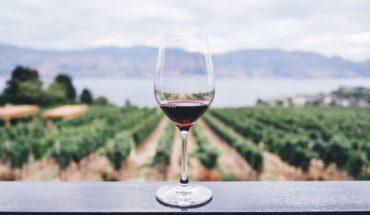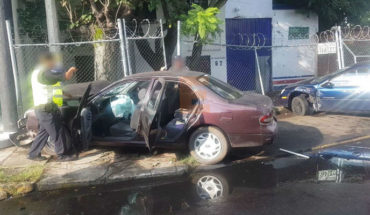Since de Castro and Gasparini published in 2000 the book “La Delgada Línea Blanca”, the relationship between drug trafficking and political power acquired a new dimension, it is no longer about the typical corruption of political actors due to the bribery capacity of the economic powers, as has been denounced in the coexistence of money and politics during the concertacionista aegis — whose maximum expression is the SQM case, lithium concession to Ponce Lerou, Pinochet’s son-in-law—which initiated the end of the current national political system. Nor is it about the drug trafficker who makes his business viable by buying the cooperation of police, prosecutors, judges and politicians, as organized crime describes us in Puzo’s novels or Ford Coppola’s films, in addition, it is a crime with a fluffy “moral cushion”, after all it is only a “crime without a victim”, because its buyer customers who only seek to manage their uncertainties and burdens by consuming these illicit substances, more efficient in that anxiolytic purpose than tobacco and alcohol. No, here it is a new opportunity to participate in an illicit business that gives its controllers the financial autonomy that ensures political independence, it is not about drug traffickers who appropriate politics, on the contrary in this case it is about political agents who appropriate drug trafficking. In this, the journalistic investigation carried out by de Castro and Gasparini is very lucid. A good recent local example of this narcotization of politics has been the case of Mayor Aguilera of San Ramón.
Finally, there is another way to use drug trafficking as an instrument of political control: “the war on drugs.” This form of symbolic power is a superior mode of that general control over the population that is the “war on crime.” Although, so far, the drug war has only shown its more than one hundred years of failures, it has the indisputable advantage that its altruistic health purposes and its police practices that seek citizen security cannot be questioned under any circumstances or motives.
Let’s look at the elements for the enunciation of that form of symbolic power that is the drug war. On this subtle kind of power Bourdieu tells us that: “… symbolic power is, in effect, that invisible power that can only be exercised with the complicity of those who do not want to know that they suffer it or that they exercise it.” [ Bourdieu, Pierre, “Sobre el poder simbólico”, en Intelectuales, política y poder, traducción de Alicia Gutiérrez, Buenos Aires, UBA/ Eudeba, 2000], let’s see then how the symbolic power of the drug war is constructed.
What is subjected to symbolic control through this war are the practices of altering consciousness to take charge of adversity in life or in the world, for healing or simply festive purposes: that is present from the origins of humanity, graphed in rock art as an expression of shamanism from thirty thousand years ago until today; in ancient Greek and Roman medicine based on careful diets and efficient painkillers such as poppy infusions (triacas), as well as bursting in a terrible way in the witch hunt (curanderas) of the medieval era, since the development of academic medicine in the thirteenth century European felt competed by the millenary knowledge of care exercised by women, that is why they were accused of obtaining these powers with the devil – there were still no communists – for their good they were imprisoned, humiliated, tortured and burned alive. A recent expression of this symbolic power was the prohibition of alcohol consumption, such as the “dry law” in the US between 1919 and 1933, with its fourteen years of persecutory failures, with the implantation and flourishing of organized crime that provided that demand; the key to the drug control model and its failure lies in that experience, always present in written and cinematographic memory and, at the same time, constantly forgotten in social and health studies, as an excellent case of symbolic control, forgotten by its active and passive actors, but permanent in the banal memory of entertainment.
The consumption of alcohol is lost in the night of human history, but alcoholism becomes a health and social problem in Europe and its colonies with the accelerated urbanization of societies from the nineteenth century, with the industrialization of production and the commodification of all social relations, that is why crime also grows vertiginously, here in Chile that happens since the 30s of the last century.
The attempts of the ccriminal ontrol of alcohol and then the other drugs are based on the principle of general prevention that bases and explains the application of criminal punishment, for the good of society in general, here the deception is clear, of the complaints that only corresponds to 50% of the criminal acts suffered by the population, here and in all parts of the world 90% of these acts have not sanctioned any, it is clear that the deterrent capacity of the penal power is laughable: people do not commit crimes for fear of criminal punishment, since they have a 90% chance of going unpunished, they simply do not do it because it seems to them that it is better for society and they do not do it. But, we all accept that criminal punishment deters crime, and if it increases along with the growth of exclusion, unemployment and poverty, more and greater punishments are called for. As in the case of the application of criminal law to the common crime, in the case of the provision and consumption of drugs the criminal prosecution also does not control anything. But it works, and boy does it work, since the war on drugs allows fewer guarantees to the accused and greater penalties to those sanctioned, thus controlling all those who can be “out of control”: women – there are more women for drugs in prisons than for any other crime – the young, the poor, —if they are poor young people, let alone — the original ethnic minorities, the Irish, the blacks, the Latinos, and above all the subversives, in short, all the others who are not white, solvent and decent men. It is well known that the United States of America’s prohibition of cannabis was aimed at controlling Mexicans, opium on migrants of Eastern origin and cocaine on blacks.
Here in Chile the drug war has acquired proverbial dimensions, no longer only the illicit supply of drugs and any suspicion of use other than for “personal, exclusive and close consumption in time” – something like: presumption of guilt instead of innocence – which must always be proven in a court of guarantee; in addition, we have criminalized the use, possession and provision of fireworks, because they are associated with the announcing and celebratory behaviors of the symbolic power of drug traffickers; moreover, the import of blank weapons will now be prohibited, because they are suitable and used lethally by the young “soldiers” of the narcos; since the territorial conflicts, over debts, account adjustments and drug thefts (“quitadas” or “mexicanadas”) between drug gangs are increasingly lethal or at least intimidating for their neighbors. It is necessary to ask then: why is not prohibited the import, sale and possession of any firearm?, other than for the possession and exclusive use of police and military forces, as is the case in Great Britain, where no civilian can have weapons, with penalties that reach 10 years in prison. But, of course, here the police escort the funeral ceremonies of the drug traffickers for the protection of the citizens.
These are all the derivations and ravings of the use of the symbolic power of the drug war by politicians, and their expert advisers, are measures that solve nothing but that are shown a lot. In the same way that the drug traffickers show their symbolic local power with fireworks, which no longer announces the arrival of drugs but reaffirms their presence in the neighborhood and the commune; for their part, the drug war is the fireworks with which politicians signal their presence in a problem that they do not know how or want to solve, they insist on attacking the supply of drugs made by drug traffickers, but they do not want to take charge of the demand for them that is a matter of mental health of the national population, of self-managing their uncertainties and burdens even at the risk of going to jail, but we know well that treating the social and cultural determinants of mental health is much more complex and more expensive than waging drug war on drug traffickers and consumers.
The challenges of the new government of President Boric in the matter of drugs are, in the first place, in detachment from the discourse of the war on drugs, which does not allow to see and take charge of the issue of mental health that generates the demand for these controlled substances, also for psychotropic drugs, alcohol and tobacco. The second issue that the new government should assume is to clearly establish the amount of controlled drugs that people can have and carry for their “personal, exclusive and close consumption in time”, consumption that is not punishable under Law 20,000 of drugs, also, remove from List 1 of psychoactive substances, prohibiting the medical use of cannabis and its derivatives, as well as hydrochloride and cocaine base, which are the most consumed controlled substances by the population. The third issue is to ensure a system of controlled drug supply as is done in most of the United States of America, in the American region and Europe. The fourth issue is to assume once and for all and in an integral way the issue of mental health, putting more actions and resources in personalized psychological treatments -psychotherapeutic- than in psychiatric treatments with psychotropic drugs -somatic- , since the latter is a reaffirmation of the uses of psychoactive substances to control stress, anxiety, anguish and depression as the most recurrent disorders in the field of mood disorders of the national population, caused by the uncertainty and overwhelm caused by the current economic, social and cultural conditions that the general population is suffering.
The content expressed in this opinion column is the sole responsibility of its author, and does not necessarily reflect the editorial line or position of El Mostrador.





